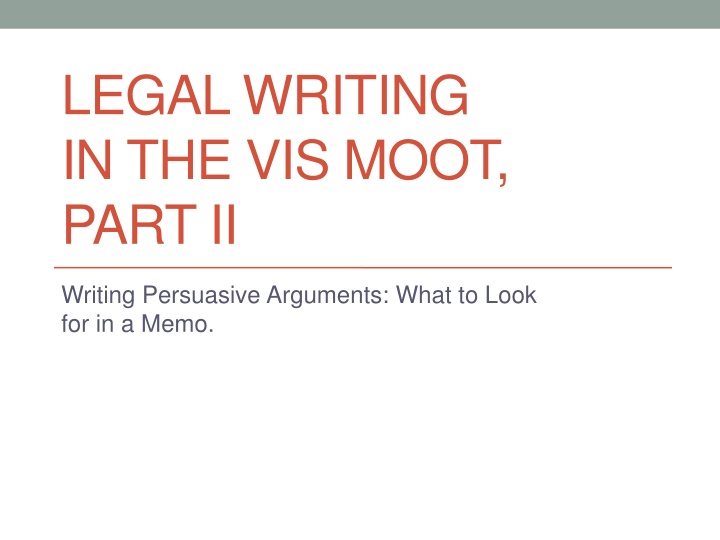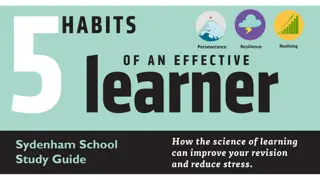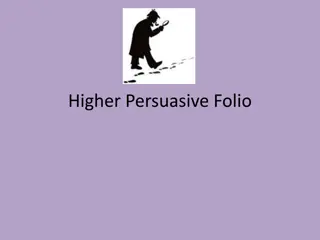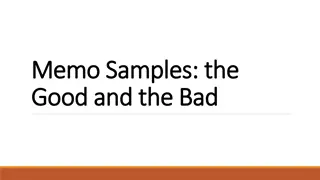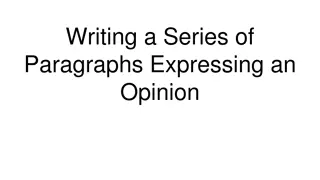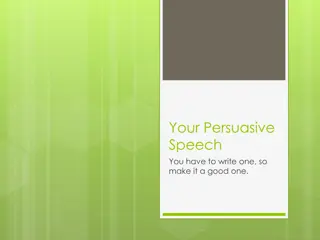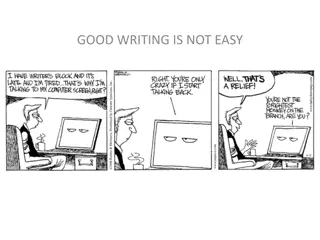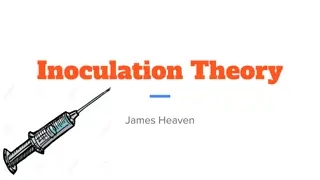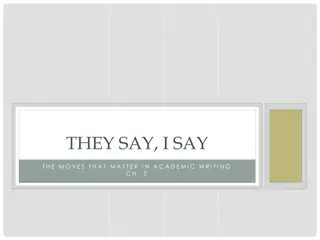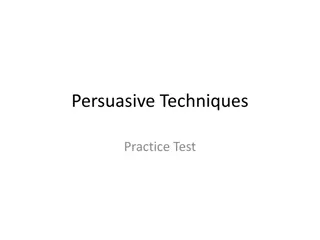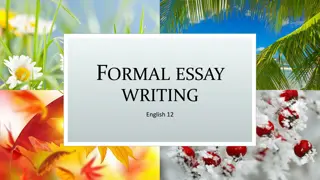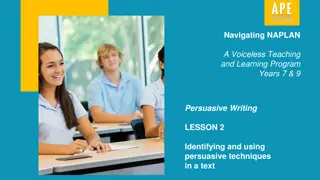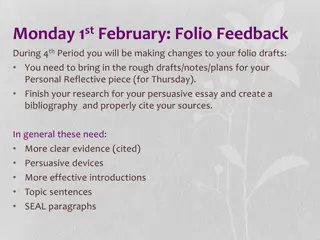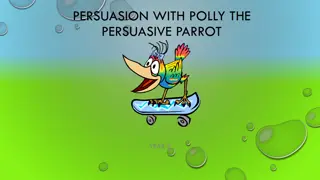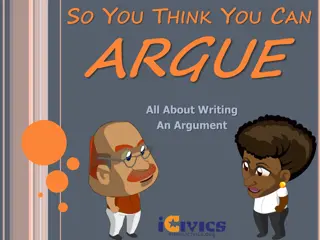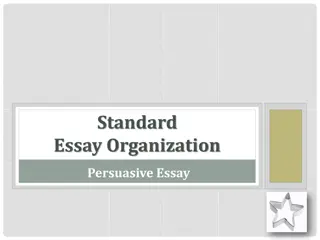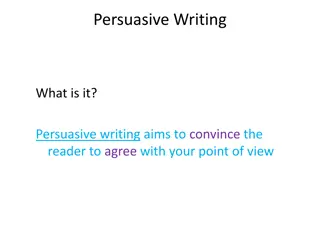Mastering Persuasive Legal Writing: Tips for Effective Memo Crafting
Crafting a persuasive legal memo involves structuring your arguments with clear headings, following the IRAC method, maintaining logical paragraph structure, providing examples, and ensuring proper citations. By emphasizing argument clarity, structure, and support, you can elevate the impact of your legal writing.
Download Presentation

Please find below an Image/Link to download the presentation.
The content on the website is provided AS IS for your information and personal use only. It may not be sold, licensed, or shared on other websites without obtaining consent from the author.If you encounter any issues during the download, it is possible that the publisher has removed the file from their server.
You are allowed to download the files provided on this website for personal or commercial use, subject to the condition that they are used lawfully. All files are the property of their respective owners.
The content on the website is provided AS IS for your information and personal use only. It may not be sold, licensed, or shared on other websites without obtaining consent from the author.
E N D
Presentation Transcript
LEGAL WRITING IN THE VIS MOOT, PART II Writing Persuasive Arguments: What to Look for in a Memo.
Paper Structure Each Issue will have an Argument Heading This will be followed by Argument Subheadings and Sub- subheadings Argument Headings should state the conclusion of the argument to follow.
Argument Structure: IRAC Issue State the conflict Rule State the principle governing the conflict Comes from law, case law, rules, or authorities Application State what the rule means for your client Apply the rule to the facts, and state the outcome Conclusion One sentence is usually enough
Paragraph Structure: Logic Paragraphs should flow naturally into one another; one idea should lead logically to the next. Paragraphs should be at least 2-3 sentences long and have three distinct parts: Topic sentence Supporting sentence[s] Concluding sentence
Example: Coaching a Vis team takes a lot of work, but the results are very rewarding. It is a challenging job in the sense that you must manage the team deadlines, and make sure that your team members are meeting all of your expectations. But, it is rewarding because, as the coach, you are able to witness the team members transform and become more persuasive lawyers as a result of your guidance. Watching your team compete successfully in the international arena is a feeling unlike any other. That feeling of pride and accomplishment is one reason that all the hard work of coaching is so worthwhile.
Example: Coaching a Vis team takes a lot of work, but the results are very rewarding. It is a challenging job in the sense that you must manage the team deadlines, and make sure that your team members are meeting all of your expectations. But, it is rewarding because, as the coach, you are able to witness the team members transform and become more persuasive lawyers as a result of your guidance. Watching your team compete successfully in the international arena is a feeling unlike any other. That feeling of pride and accomplishment is one reason that all the hard work of coaching is so worthwhile.
Citations Do not permit unsupported arguments. Your team should cite: Every time they state a fact, a rule, or a legal conclusion; Every time they refer to an authority, a case, a law, or a rule. Discourage citing multiple authorities for one argument (string citation). TIP: If you see an argument without supporting citations, it probably means your team has not done enough research.
Reviewing When reading drafts: Demand clear arguments easy to understand, in good English. Demand citations to authorities. Do not accept excuses. If there is truly no authority to support your team s argument, then it is not a reasonable argument and should be discarded. Demand logical structuring. Each argument should flow into the next, and build on the last. Point out weaknesses. Most importantly, do not rewrite the arguments for the team members. You are there to check their work, not do it for them.
The Role of the Mentor Submit drafts to the Mentor only after you have reviewed it yourself. Welcome Mentor comments and critiques, thank them for their time, and pass their feedback along to the teams. The Mentor may not write or rewrite portions of the arguments. They may only provide suggestions, based on their expertise as lawyers and writers. Respect the Mentor s time: Adhere to any deadlines you agree to. Provide sufficient time for review and comment.
Final Tips: Review winning memos from the Vis website Read the Problem as often as you can while your team researches and writes the memo Review the CISG and VIAC rules so you can spot weaknesses in the arguments more easily
